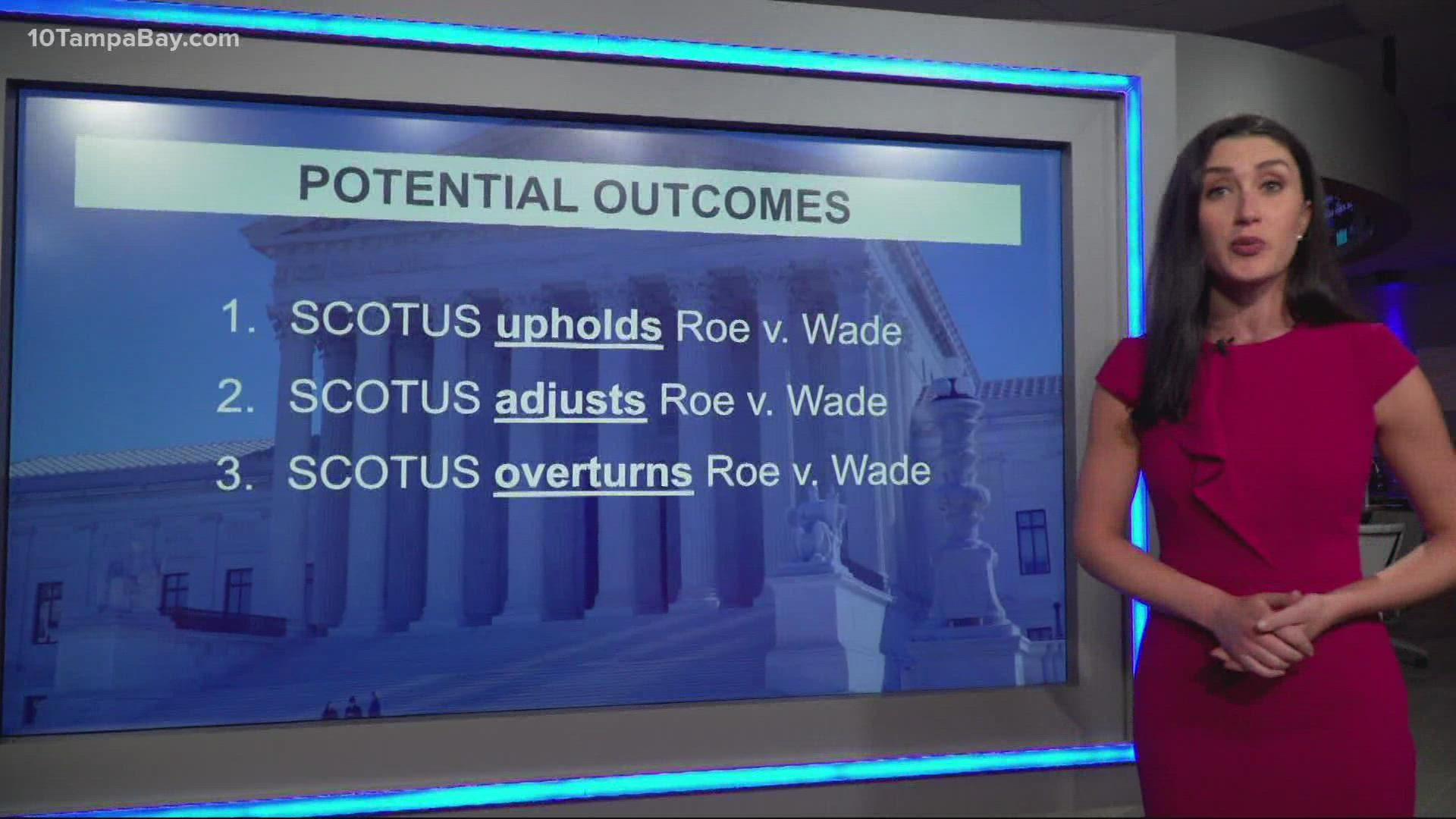TALLAHASSEE, Fla. — Gov. Ron DeSantis has signed a bill into law that bans most abortions after 15 weeks in Florida.
Already, the bill faces a legal challenge and constitutional law experts say it's not the only challenge it could face.
"There are going to be two lines of attack challengers are going to bring against the law," said Stetson Law Professor Louis Virelli.
The first legal challenge the new law faces is already playing out in the United States Supreme Court in "Dobbs v. Jackson Women's Health Organization." In June, the Supreme Court is expected to rule on the case determining the constitutionality of Mississippi's abortion law — which Florida's is closely modeled after.
"Under Roe v. Wade, a 15-week ban on abortion is unconstitutional. The reason the law was enacted and signed anyway is because the Supreme Court could change that as early as June," said Professor Virelli. "A July 1 effective date for the law Governor DeSantis signed gives the law a chance to wait out the Supreme Court to see if Roe v. Wade is still in effect at the time this law takes effect."
Professor Virelli says there are three potential outcomes for "Dobbs v. Jackson Women's Health Organization," and each impacts Florida's new abortion law differently.
1) SCOTUS could uphold Roe v. Wade as it currently stands, and then Mississippi and Florida's law would be deemed unconstitutional and struck down.
2) SCOTUS could adjust Roe v. Wade in a way that upholds the Mississippi law to say 15 weeks is constitutional, and Mississippi and Florida's laws would stand.
3) SCOTUS could overturn Roe v. Wade, then these new laws would be deemed constitutional, in addition to further restrictions.
The second legal challenge Florida's new abortion law could face is the argument that the law violates a privacy clause in Florida's Constitution.
"The Florida Constitution protects abortion rights more stringently than the United States Constitution. It has a privacy clause in it that protects the privacy of Floridians and in turn, the state of Florida has held that privacy clause includes the right to terminate a pregnancy and the right to have an abortion," Professor Virelli said.
The clause in Section 1, Article 23, reads:
"Right of privacy— Every natural person has the right to be let alone and free from governmental intrusion into the person’s private life except as otherwise provided herein. This section shall not be construed to limit the public’s right of access to public records and meetings as provided by law."
President and CEO of Planned Parenthood Southwest and Central Florida Stephanie Fraim told 10 Tampa Bay the group is already considering legal action.
"We have a Florida State Constitution that says we have this right to privacy. Twenty-two years ago, lawmakers put that into our state constitution specifically because they recognize the importance of our autonomy, our bodily autonomy and our right and freedoms around making our own healthcare decisions," said Fraim.
Fraim said as legal battles ensue, Planned Parenthood will continue to work to provide access to services the organization provides, including abortion.
"Certainly we will be looking at legal actions, and in the meantime, we are continuing to provide the quality care that we’ve always provided to Floridians and to anyone who chooses to live here," said Fraim.
Professor Virelli said Planned Parenthood would have a strong case, but added membership in Florida's Supreme Court will matter significantly.
"We have a new state supreme court, a relatively new one, many of whom were appointed by Governor DeSantis and I believe all of whom were appointed by Republican governors," Virelli said.
DeSantis signed the bill at a Kissimmee church while joined by lawmakers and pro-life supporters.
"We are here today to protect life," DeSantis said."We are here today to defend those who cannot defend themselves."
The legislation bans abortion if a doctor finds the gestational age of a fetus is more than 15 weeks. Exceptions are allowed if the woman's life is considered to be in danger or if the fetus is considered to have a "fatal fetal abnormality."
Two physicians must certify "the termination of the pregnancy is necessary to save the pregnant woman’s life" or avert serious irreversible impairment. Democratic lawmakers proposed an amendment to allow just one physician to make that judgment, but it was rejected.
Under current law, Florida allows abortions up to 24 weeks.

